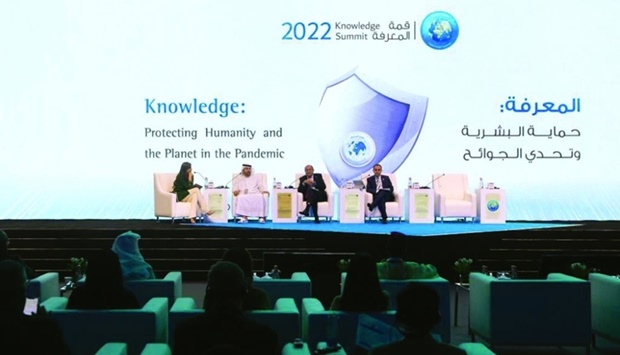Qatar has been ranked second globally in the “variable of industry and services value added” as a percentage of GDP within the economy indicator of the Global Knowledge Index (GKI) 2021, issued by the UN Development Programme (UNDP), in partnership with the Mohamed bin Rashid Foundation Al Maktoum Knowledge Foundation (MBRF).
The index measures the world’s knowledge reality as a comprehensive concept closely related to sustainable development, various dimensions of contemporary human life, the development of knowledge societies and economies, and the formulation of development policies to anticipate the future.
GKI gauges the knowledge status in 154 countries worldwide based on seven composite sectoral indices that include 155 variables selected from more than 40 international sources and databases.
These variables highlight the performance of six vital sectors: pre-university education, technical and vocational education and training, higher education, ICT, research, development and innovation, and economy, as well as a sectorial axis related to the enabling environment to determine the social, political, economic, health, and environmental contexts that surround these sectors.
The index, which was widely reviewed at the seventh edition of the ‘Knowledge Summit’ that took place last March at the Expo 2020 Dubai, showed Qatar’s strong performance in terms of knowledge infrastructure, ranking 38th globally among the 154 countries studied by GKI.
It further highlighted that Qatar has five strengths: a low unemployment rate of vocational education graduates, growth in the percentage of technical education and vocational training jobs, decline in the percentage of vulnerable workers, a high percentage of internet users, and the high added value of industry and services as a percentage of GDP.
With regard to sectoral indices, the report revealed that Qatar showcased the best performance in pre-university education, ranking 14th globally, followed by the economy and higher education (20th); research, development, and innovation (41st); ICT (51st); enabling environment (55th); and the technical education and vocational training (70th globally).
The index measures the world’s knowledge reality as a comprehensive concept closely related to sustainable development, various dimensions of contemporary human life, the development of knowledge societies and economies, and the formulation of development policies to anticipate the future.
GKI gauges the knowledge status in 154 countries worldwide based on seven composite sectoral indices that include 155 variables selected from more than 40 international sources and databases.
These variables highlight the performance of six vital sectors: pre-university education, technical and vocational education and training, higher education, ICT, research, development and innovation, and economy, as well as a sectorial axis related to the enabling environment to determine the social, political, economic, health, and environmental contexts that surround these sectors.
The index, which was widely reviewed at the seventh edition of the ‘Knowledge Summit’ that took place last March at the Expo 2020 Dubai, showed Qatar’s strong performance in terms of knowledge infrastructure, ranking 38th globally among the 154 countries studied by GKI.
It further highlighted that Qatar has five strengths: a low unemployment rate of vocational education graduates, growth in the percentage of technical education and vocational training jobs, decline in the percentage of vulnerable workers, a high percentage of internet users, and the high added value of industry and services as a percentage of GDP.
With regard to sectoral indices, the report revealed that Qatar showcased the best performance in pre-university education, ranking 14th globally, followed by the economy and higher education (20th); research, development, and innovation (41st); ICT (51st); enabling environment (55th); and the technical education and vocational training (70th globally).

